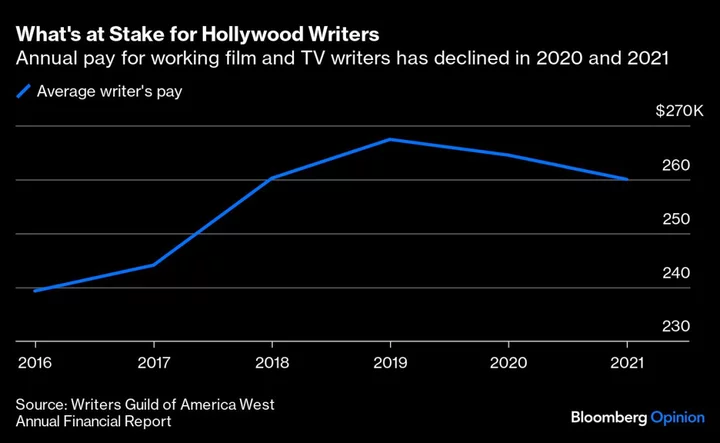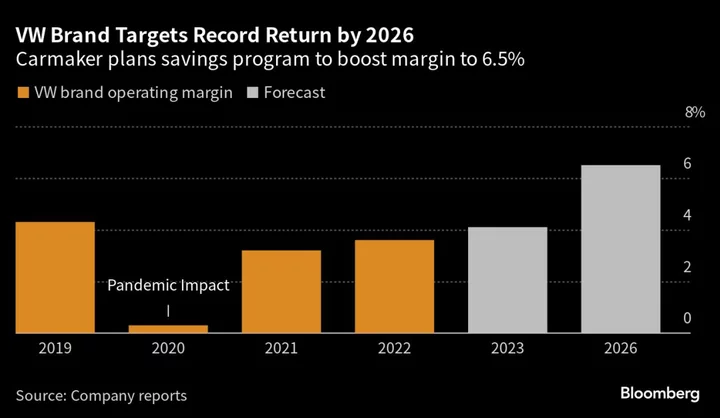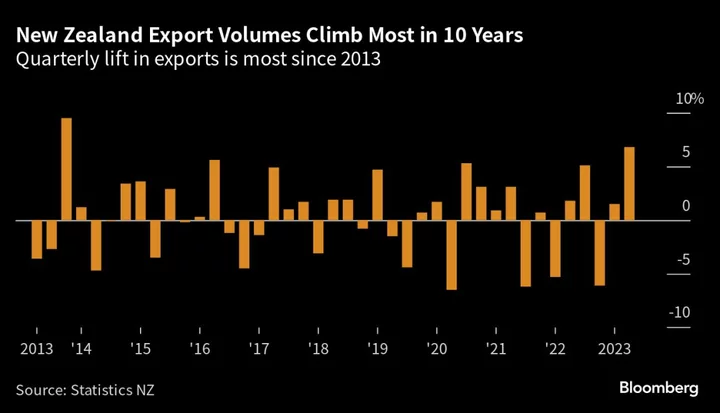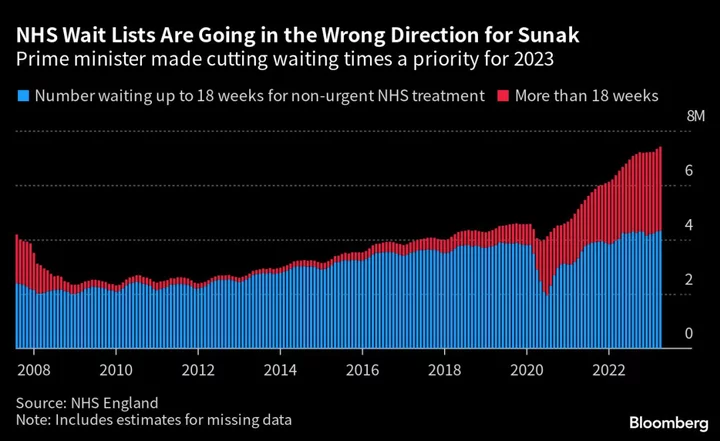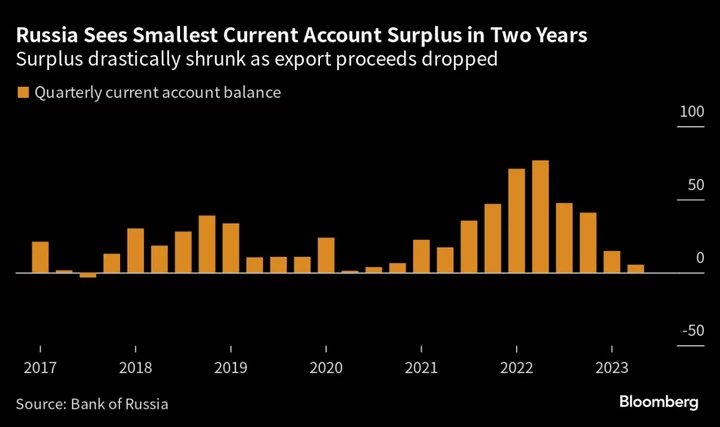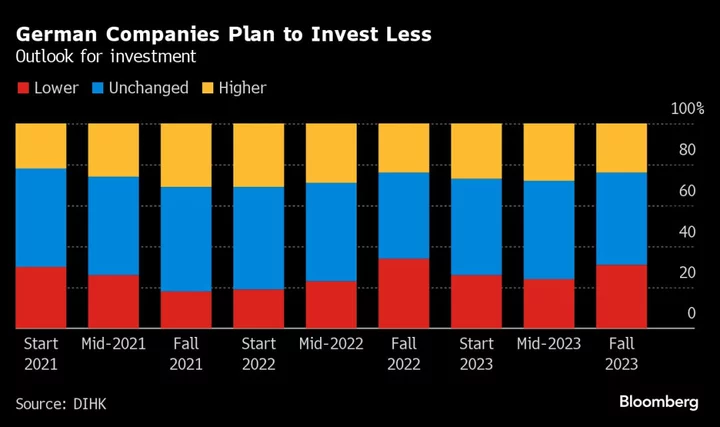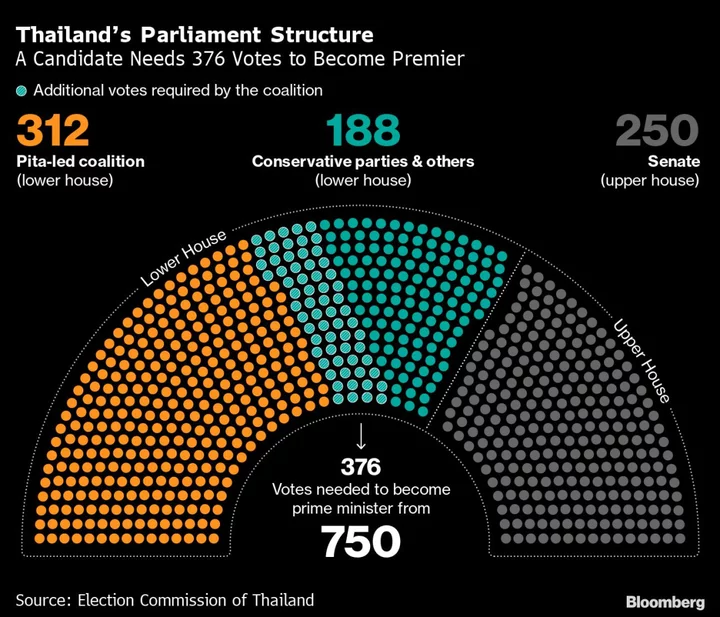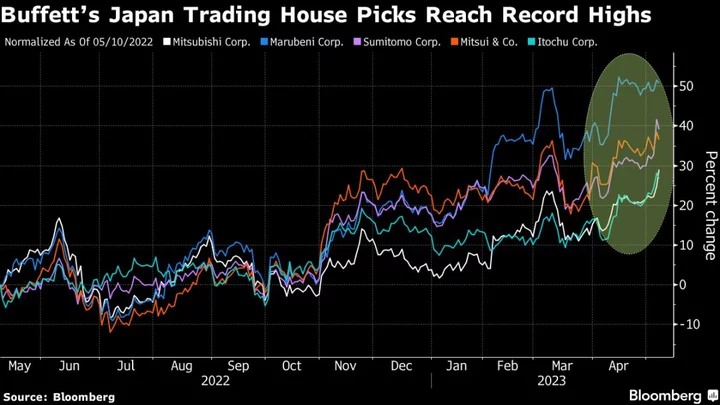It’s time for Act 2 in Hollywood’s long summer of labor trouble: getting actors back to work.
Striking Hollywood writers reached a new labor agreement with studios including Walt Disney Co. and Netflix Inc., but production remains shut down. An actual return to filming will require a new contract between SAG-Aftra — the Screen Actors Guild — and the Alliance of Motion Picture & Television Producers, the studios’ bargaining group.
The actors have been on the picket line since July, striking over the same issues as writers, including wages, residual pay for reruns on streaming services and protection against artificial intelligence.
“We remain on strike in our TV/Theatrical contract and continue to urge the studio and streamer CEOs and the AMPTP to return to the table and make the fair deal that our members deserve and demand,” SAG said in a statement Sunday after the writers agreement was announced.
The cost of this year’s labor work stoppage, now at five months, will be in the billions of dollars — and far above the $2 billion estimate from the three-month strike that hit the industry in 2007.
The combined market value of Disney, Warner Bros. Discovery Inc. and Paramount Global, three major studios, has fallen by about $50 billion since early May, with Disney accounting for three-fourths of that loss.
Two other major players, NBCUniversal parent Comcast Corp. and Netflix Inc., rose during the strike.
And the costs continue to mount for the companies and workers. Film and TV production remains on hold, impacting not just writers and actors but directors, crew members and industries like catering and real estate. The walkout has delayed the return of new shows for the fall TV season and films for 2024.
If all goes according to plan, governing councils of the writers union could authorize a member vote as soon as Tuesday. They could also give scribes the OK to return to their offices, letting studios catch up on delayed work on TV shows and movies. The writers walked out on May 2.
“We can say, with great pride, that this deal is exceptional – with meaningful gains and protections for writers in every sector of the membership,” the guild said in a statement.
Read More: The Hollywood Strike Is Ending. This Is How It Happened.
The writers went on strike for the first time since 2007 to fight for higher pay from streaming services, which have reshaped how TV is made and how talent gets paid. The Screen Actors Guild joined them in July.
Details of the agreement won’t be announced for a few days, however people familiar with the matter said earlier that writers gained concessions on key points, including higher wages.
The studios have agreed to staff a certain number of writers on their TV shows, a figure that will increase with the number of episodes in a season, one of the people said. The two sides have also created a structure in which writers will receive bonuses for popular shows on streaming services.
And it appears they have also reached an agreement on the use of artificial intelligence, which writers feared could destroy jobs.
The deal will initially pave the way for soap operas, game shows and late-night talk shows to resume, even if most other productions stay shut down.
The momentum from the agreement should help resolve the actors’ strike quickly, according to Alex DeGroote, a media analyst in London. Even so, it will take time before big-budget shows and movies resume production, he said.
“The world’s movie theatres can celebrate,” AMC Entertainment Holdings Inc. Chief Executive Officer Adam Aron said on X, formerly Twitter. “Extremely good news that progress is being made.”
Shares of studios were mixed on Monday. Netflix was up 0.9% at 1:33 p.m. while Disney was down 0.6%. Warner Bros Discovery fell 3.1% and Paramount Global was little changed.
The studios and writers didn’t come close to a deal before the onset of the strike, and the studios and writers then didn’t negotiate for months, during which thousands of guild members protested outside the studios’ offices from New York to Los Angeles. While the economics of streaming remained the primary focus of the guilds, the threat of artificial intelligence also emerged as a growing concern.
The heads of the biggest media companies got more engaged with the dispute in late July and early August, after the actors joined the strike. The studios offered a new proposal in August that addressed many, but not all, of the writers’ concerns. The two sides negotiated for a couple of weeks before breaking off yet again.
The September negotiations came as a surprise. The two sides hadn’t been speaking — at least not officially — and many studio executives were debating whether it was time to engage with the actors instead.
But pressure on both sides to cut a deal had increased. Studios feared the impact of months more without the ability to produce new programming, and many writers began to push their union’s leadership to cut a deal so everyone could get back to work.
Read More: Why Hollywood’s Actors and Writers Are on Strike: QuickTake
People who work in entertainment, be they writers or grips, were starting to leave Los Angeles due to the lack of progress. Prominent writers asked to meet with the leadership of the guild to discuss the state of the negotiations, and several talk shows said they would return, only to cancel plans under pressure from the unions.
When the latest talks began, four of the most powerful executives in entertainment — Netflix Chief Executive Officer Ted Sarandos, Disney CEO Bob Iger, Warner Bros. CEO David Zaslav and NBCUniversal Chief Content Officer Donna Langley — joined their labor negotiators.
The studios and writers negotiated for several days. After months of public acrimony and finger-pointing, the two sides kept their public communications to a minimum as they hammered out a deal to get the industry back to work.

